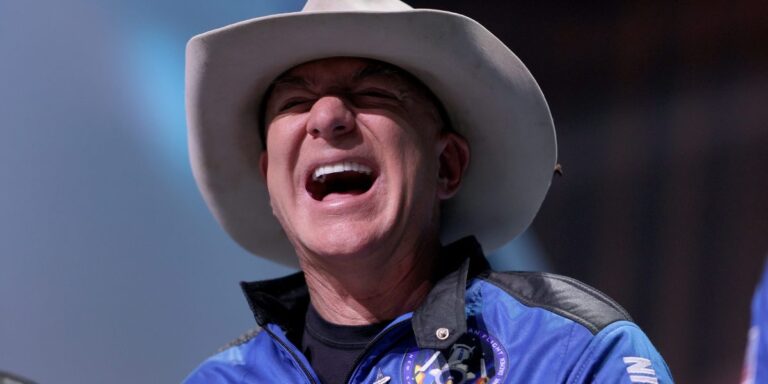Aerospace giant Boeing is in dire financial straits and is considering selling a business unit that supports NASA’s major missions, people familiar with the matter told The Wall Street Journal on Friday.
This could include the company’s Starliner space taxi program and operations related to the International Space Station, but not NASA’s Large Space Launch System rocket, the report said.
These considerations began before Kelly Ortberg took over as CEO in August. The newspaper said that before he joined the company, Boeing held talks with Jeff Bezos’ Blue Origin space company about taking over some of the NASA programs.
A Boeing spokesperson told Fortune that the company does not comment on market rumors or speculation. Blue Origin did not respond to a request for comment.
The news comes days after Boeing reported third-quarter results showing a $6 billion loss as workers rejected the latest offer and the commercial aviation sector was hobbled by a prolonged strike. It was done.
Additionally, the Boeing jet crash earlier this year has led to increased scrutiny of the company’s production processes and work culture, weighing on its commercial sector.
In his first earnings call as CEO on Wednesday, Mr. Ortberg vowed to make the company iconic again, but also take a hard look at businesses outside of its core commercial and defense businesses. He also suggested that.
“It’s better to do less and do better than to do more and do it less well,” he told analysts. “Where do we want this company to be in five years, 10 years? And will these things add value to the company or will they distract us?”
Boeing’s long space legacy includes the iconic Saturn V rocket and space shuttle that took astronauts to the moon during the Apollo program. It is also the prime contractor for the space station.
But the company’s Starliner program suffered a major setback earlier this year, when a crewed test flight took two astronauts to the space station, only to be stranded there due to a capsule malfunction.
NASA announced in August that if all goes according to plan, a SpaceX mission will return astronauts to Earth in February 2025, extending their total time in space to eight months.
Meanwhile, SpaceX has been ferrying astronauts to and from the space station for years as another contractor for NASA’s space taxi program. Elon Musk’s company has also emerged as a top provider of launch services for the U.S. military, other governments and companies around the world.
SpaceX’s latest accomplishment was a test flight of its giant Starship rocket, whose superheavy booster touched down on the launch pad earlier this month.
By contrast, Boeing lags behind its Starliner space taxi and Space Launch System rocket designed for deep space missions. It successfully completed a test launch in 2022, but has been plagued by delays and cost overruns.
Meanwhile, NASA said it is far from “abandoning” Boeing as a space partner and expressed its continued confidence in the company.
NASA Administrator Bill Nelson said in August that he was “100%” confident that Boeing would launch new crewed Starliner missions in the future, citing the company’s partnership with NASA.


